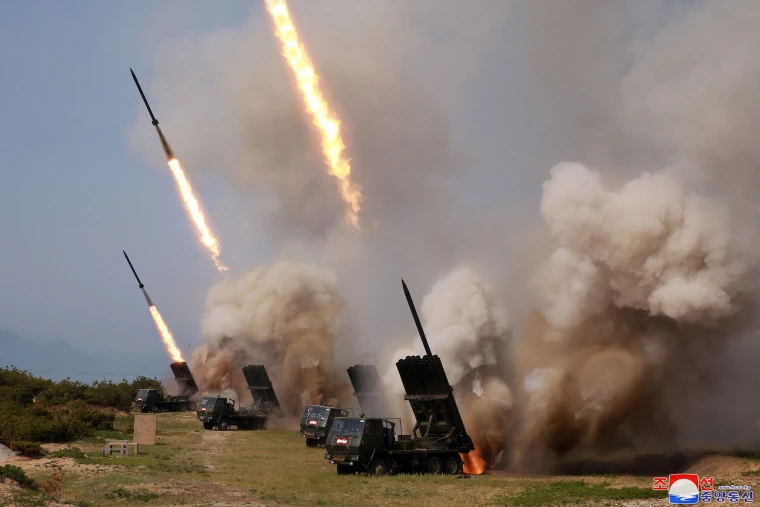On Friday, February 2nd 2024, North Korea launched multiple cruise missiles, as reported by Seoul’s military, continuing its recent series of weapons tests amid escalating tensions and what Kim Jong Un’s regime describes as “war preparations.”
Throughout the year, Kim has escalated hostilities, designating South Korea as the “principal enemy”, dismantling agencies dedicated to reunification efforts, and threatening conflict over minor territorial disputes.
Pyongyang has intensified its weapons testing, including multiple cruise missile launches, an “underwater nuclear weapon system” test, and the firing of a solid-fueled hypersonic ballistic missile.
According to South Korea’s Joint Chiefs of Staff, the military detected the firing of multiple unidentified cruise missiles into the sea off the west coast of the country around 11 am (0200 GMT) on Friday.
The South Korean military has heightened surveillance in close coordination with the United States, monitoring for additional activity by the North Korean army and analyzing the recent missile launch.
Unlike ballistic missiles, cruise missile testing is not prohibited under current UN sanctions on Pyongyang. These missiles, propelled by jet engines, fly at lower altitudes, making them harder to detect and intercept.
Analysts speculate that North Korea may be testing cruise missiles before potentially sending them to Russia for use in Ukraine, despite UN sanctions prohibiting such transactions.
Kim Jong Un’s recent inspection of warships at a naval shipyard underscores efforts to strengthen maritime forces as part of ongoing “war preparations,” according to state media reports.
The bolstering of naval capabilities, including the desire for a nuclear-powered submarine, aligns with strategic objectives outlined by Kim during a key party congress in 2021.
While North Korea has showcased advancements in its military arsenal, questions remain about the operational capacity of its tactical nuclear attack submarine launched last year.
The presence of about 30,000 US troops in South Korea serves as a deterrent against military threats from Pyongyang amidst heightened tensions in the region.








More Stories
Teenager in viral photo of Obi’s 2023 presidential campaign rally, Alabi Quadri languishes in jail
Ribadu tells families of kidnapped victims not to pay any ransom
Ndume tackles Tinubu over massive borrowings, lists ‘spurious’ items